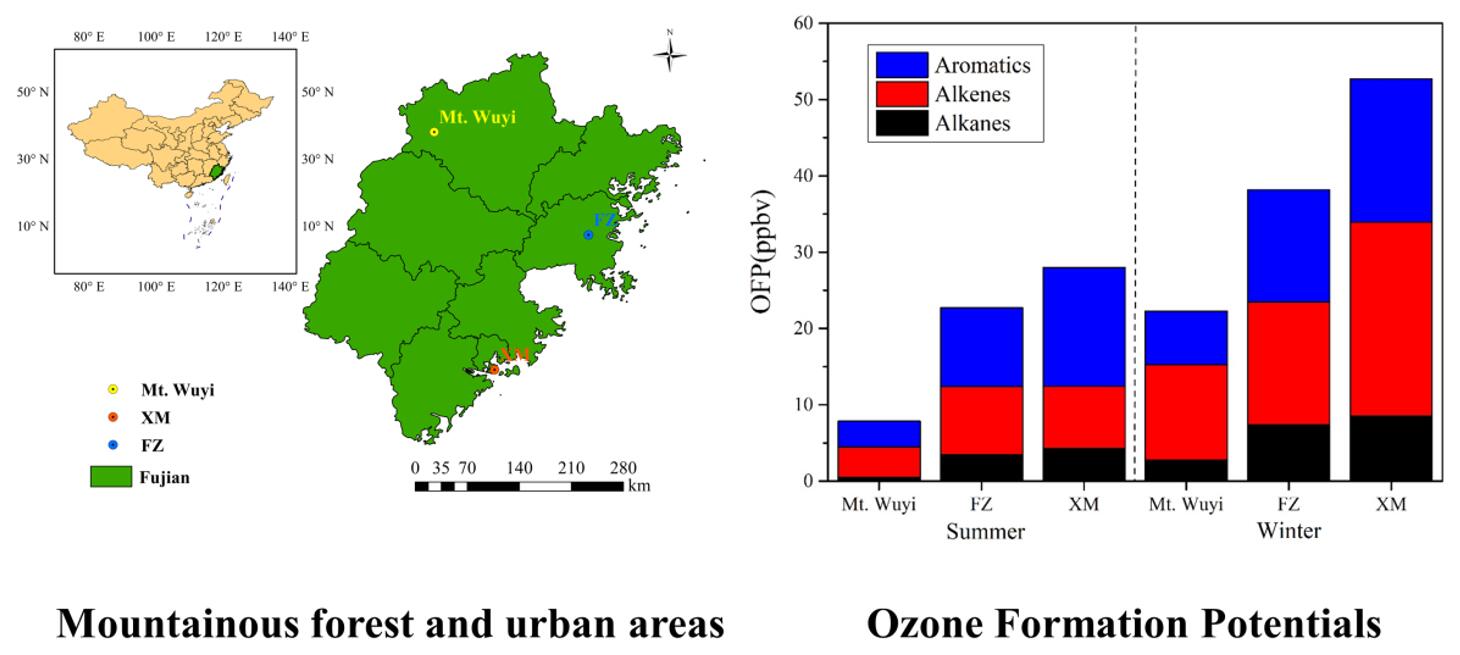Volatile organic compounds (VOCs) are important trace gases in the atmosphere, affecting air quality (e.g. ozone and secondary organic aerosol formation) and human health.
The emission, transport and chemistry of VOCs in the southeast of China were systematically studied by Institute of Urban Environment, Chinese Academy of Sciences. A campaign was conducted in summer and winter of 2016 at three contrasting sites in close proximity by CHEN Jinsheng group . One measurement site (Mt.Wuyi) is a mountainous forest site (1139 m a.s.l) located in a natural reserve, while the other two sites (Fuzhou and Xiamen) are coastal urban sites with high population and vehicle density. Studies have shown that many of the measured alkanes, alkenes and aromatics exhibited clear seasonal and diurnal patterns, driven by variations of hydroxyl (OH) radicals, which is the predominant oxidant of VOCs in the atmosphere. By examining tracer-tracer correlations for VOCs, variability-lifetime analysis and backward trajectories, strong emissions from vehicular exhaust, liquefied petroleum gas (LPG) and solvent usage were identified as key sources in Fuzhou and Xiamen, whereas at Mt. Wuyi the main emission sources were local emissions (e.g. biomass burning) in summer and long-range transport in winter. The results indicate that natural sites could be impacted strongly by surrounding urbanization. Isoprene and propylene in summer and propylene in winter contributed the most to ozone formation at the three sites. Comparison of VOCs at these three sites provides theoretical support for regional air pollution and prevention.
The research results were published in internationally renowned journal: Science of the Total Environment, 2019, 657:1491-1500. Zhenyu Hong, a doctoral student at the Institute of Urban Environment of the Chinese Academy of Sciences, and Mengze Li, a doctoral student at the Max Planck Institute of Chemistry in Germany, are the co-first authors of the article. Professor Jinsheng Chen and assistant researcher Mengren Li from the Institute of Urban Environment, Chinese Academy of Sciences, are the corresponding authors.
This research was financially supported by the Chinese Academy of Sciences Interdisciplinary Innovation Team Project, the National Natural Science Foundation of China (NO. U1405235; 41575146 & 21507127), the National Key Research & Development Program (NO. 2016YFC02005 & 2016YFE0112200), the Major State Basic Research Development Program of China (NO. 2014CB953802) and the Natural Science Foundation of Fujian Province (2016J01201).
